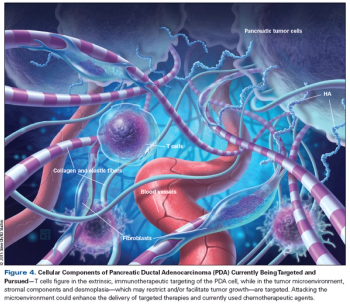
Experts from Sibley Memorial Hospital discuss how multidisciplinary work has enhanced outcomes such as survival and resource use at their institution.

Your AI-Trained Oncology Knowledge Connection!


Experts from Sibley Memorial Hospital discuss how multidisciplinary work has enhanced outcomes such as survival and resource use at their institution.

Treatment with KRAS inhibitors may help mitigate a common driver of genetic alteration across a majority of pancreatic cancers.

Updated results from the BREAKWATER study seemed to be most impactful to the CRC space, according to Michael J. Pishvaian, MD, PhD.

Panelists discuss how minimal residual disease (MRD) detection in patients with colorectal liver metastases (CLM) in the GALAXY study predicts both the benefit of adjuvant therapy and overall prognosis, potentially guiding more personalized treatment decisions.

Panelists discuss how the 24-month data from the GALAXY study presented at the European Society for Medical Oncology (ESMO) 2024 meeting underscore the importance of minimal residual disease (MRD) status and circulating tumor DNA (ctDNA) clearance as key prognostic and predictive factors in colorectal cancer (CRC) management.

Panelists discuss how treatment strategies for circulating tumor DNA (ctDNA)–positive colorectal cancer (CRC) are evolving, with a focus on tailoring interventions based on molecular findings to improve patient outcomes and minimize unnecessary therapies.

Panelists discuss how results from the GALAXY study reveal that circulating tumor DNA (ctDNA) status is a powerful predictor of outcomes and treatment benefit in patients with colorectal cancer (CRC), potentially revolutionizing personalized treatment approaches.

Panelists discuss how the GALAXY study data demonstrate the effectiveness of circulating tumor DNA (ctDNA)–based minimal residual disease (MRD) monitoring in patients with resected colorectal cancer (CRC), potentially improving postsurgical care and outcomes.

Panelists discuss how insights from the INTERCEPT, BESPOKE, COSMOS-CRC-01, and GALAXY studies are advancing our understanding of circulating tumor DNA’s (ctDNA) utility in colorectal cancer management, from early detection to treatment monitoring.

Panelists discuss how the DYNAMIC trial data demonstrate the potential of circulating tumor DNA (ctDNA)–guided therapy to inform and optimize adjuvant chemotherapy decisions in patients with stage II colon cancer.

Panelists discuss how minimal residual disease (MRD) testing in colorectal cancer (CRC) is facilitating the development of chemo-sparing strategies while maintaining effective control of residual disease.

Panelists discuss how minimal residual disease (MRD) detection in colorectal cancer (CRC) is improving postsurgical treatment decision-making and enabling more effective monitoring of patient outcomes.

Panelists discuss how circulating tumor DNA (ctDNA) is revolutionizing colorectal cancer (CRC) management by enabling more personalized and precise approaches to diagnosis, treatment selection, and monitoring of disease progression.

Panelists discuss how colorectal cancer rates are increasing, particularly among younger adults, while highlighting the potential of circulating tumor DNA (ctDNA) technology to improve early detection and treatment monitoring.

In this article, we review seminal articles that have evaluated the molecular architecture of pancreatic cancer. We compare the methods used and the molecular subtypes defined, and assess the predominant subgroups in order to better understand which therapies may improve patient outcomes.

This article reviews the current treatment paradigms for metastatic disease, focusing on ways to ameliorate symptoms and lengthen survival. We then summarize recent advances in our understanding of the molecular and cellular aspects of pancreatic cancer.

Published: October 29th 2024 | Updated:

Published: October 29th 2024 | Updated:

Published: October 16th 2024 | Updated:

Published: October 22nd 2024 | Updated:

Published: November 5th 2024 | Updated:

Published: November 12th 2024 | Updated: